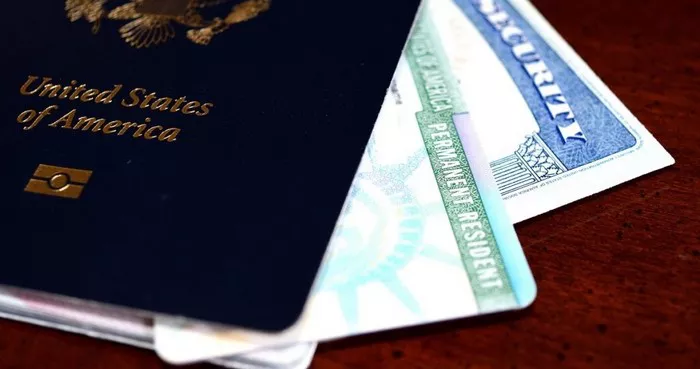In an increasingly globalized world, the concept of permanent residence permits holds immense significance for individuals seeking to establish a stable and long-term presence in a country other than their country of origin. A permanent residence permit, often referred to as a PRP, PR card, or green card depending on the country, grants foreign nationals the right to reside indefinitely in a host country, typically conferring a range of benefits and responsibilities. This article aims to delve into the nuances of permanent residence permits, exploring their significance, eligibility criteria, application processes, and the rights and obligations they entail.
What is a Permanent Residence Permit?
A permanent residence permit is a legal document issued by a host country to foreign nationals, allowing them to reside indefinitely within its borders. Unlike temporary visas, which have a limited duration, permanent residence permits offer a more secure and stable status, often leading to eventual eligibility for citizenship. This status signifies a commitment from both the individual and the host country towards long-term settlement and integration.
Significance of Permanent Residence Permits
Obtaining a permanent residence permit can have profound implications for individuals and their families. It provides a sense of security and stability, eliminating the uncertainty associated with temporary visas and the need for frequent renewals. Moreover, permanent residents typically gain access to a wide range of social benefits, including healthcare, education, and employment opportunities, akin to those enjoyed by citizens.
From an economic standpoint, permanent residents contribute to the host country’s workforce and economy on a consistent basis, often bringing valuable skills, expertise, and diversity to their adopted communities. This infusion of talent and labor can foster innovation, entrepreneurship, and cultural exchange, enriching the fabric of society.
Eligibility Criteria for Permanent Residence Permits
Eligibility criteria for permanent residence permits vary widely from one country to another and may depend on factors such as employment status, family ties, investment, or humanitarian considerations. Common requirements often include:
1. Length of Residency: Applicants may need to demonstrate a minimum period of continuous residence in the host country, typically ranging from several years to a decade.
2. Employment or Economic Contribution: Some countries offer permanent residence pathways for skilled workers, entrepreneurs, investors, or individuals with exceptional talents, requiring evidence of employment, business ownership, or financial investment.
3. Family Sponsorship: Family reunification is a prevalent basis for permanent residency, allowing individuals to join or sponsor close family members already residing in the host country.
4. Humanitarian or Refugee Status: Persons granted asylum or refugee status may become eligible for permanent residence after meeting specified criteria related to their protection needs.
5. Language and Integration Requirements: Certain countries impose language proficiency tests or integration courses to assess applicants’ ability to adapt to their new environment.
Navigating these eligibility requirements can be complex, often necessitating careful planning and documentation to ensure a successful application.
Application Process
The application process for a permanent residence permit typically involves several stages, including submission of forms, supporting documents, and, in some cases, interviews or assessments. While the specific procedures may vary, common steps include:
1. Documentation: Applicants are usually required to gather various documents, such as identification, proof of residence, employment records, financial statements, and, if applicable, sponsorship or relationship evidence.
2. Form Submission: Completed application forms, along with the requisite documents, are submitted to the relevant immigration authorities or government agencies for review.
3. Background Checks: Immigration authorities conduct background checks to verify the authenticity of the information provided and assess the applicant’s eligibility based on the established criteria.
4. Interviews or Examinations: In certain cases, applicants may be called for interviews, language proficiency tests, or medical examinations to assess their suitability for permanent residency.
5. Decision: Upon completion of the review process, applicants are informed of the decision regarding their permanent residence status. Successful applicants are issued with a permanent residence permit or card, while unsuccessful ones may have the option to appeal or explore alternative pathways.
It is essential for applicants to adhere to all requirements and deadlines stipulated by the immigration authorities to avoid delays or potential rejections.
Rights and Obligations of Permanent Residents
Permanent residents enjoy a plethora of rights and benefits in their host country, including:
1. Right to Reside: Permanent residents have the legal right to live and work in the host country indefinitely, without the need for additional visas or permits.
2. Access to Services: They are entitled to access healthcare, education, social security, and other public services on par with citizens.
3. Employment Rights: Permanent residents have the right to work in any job or profession of their choice, subject to applicable labor laws and regulations.
4. Travel: While permanent residents are typically free to travel within the host country, some restrictions may apply for extended periods of absence or international travel.
5. Pathway to Citizenship: In many countries, permanent residents may eventually become eligible to apply for citizenship through naturalization, provided they meet certain residency and integration requirements.
Alongside these rights, permanent residents also bear certain obligations, such as abiding by the laws of the host country, paying taxes, and potentially serving in the military if required.
Conclusion
In conclusion, permanent residence permits serve as a cornerstone of international migration, facilitating long-term settlement and integration for millions of individuals worldwide. By granting stability, security, and access to essential services, they enable immigrants to build meaningful lives in their adopted homelands while contributing to the social, cultural, and economic fabric of society. Understanding the intricacies of permanent residence permits is essential for those navigating the complexities of global mobility, ensuring a smoother transition towards a future of opportunity and belonging.


